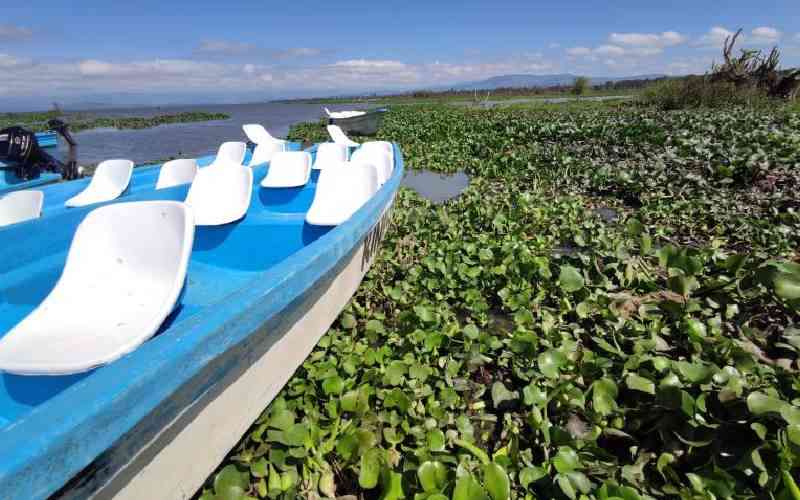×
The Standard e-Paper
Join Thousands Daily

Hoteliers, fishermen, and traders operating by the lakefront in Kisumu County have resolved to hire manual labourers to uproot water hyacinth, which interferes with the scenic view of the lake and other activities such as fishing.
This is happening as the disruptive weed reemerged in the lake and covered several beaches across the Nyanza region.